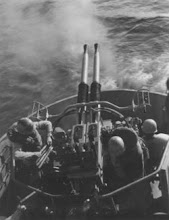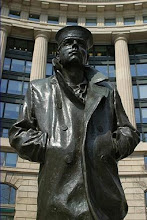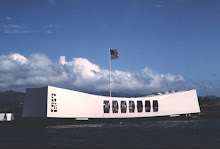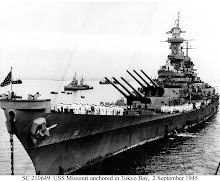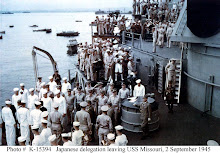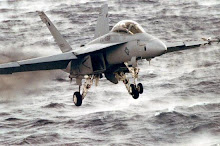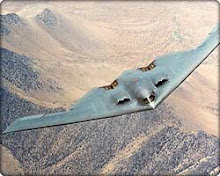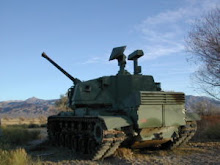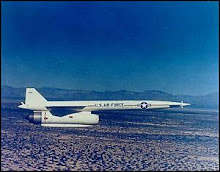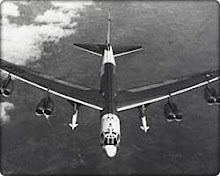This is not in imitation of the musulman, who for every action to be taken, looks back to his koran, with nothing left to learn from before this was compiled, nothing exist for him before the the 7th Century C.E.
Our purpose here is to save our Civilization, before it is destroyed by the musulmans, and everything prior to their Mohammed is obliterated, all our antiquities gone, forever.
. . . top students in the United States chant[ed] the battlecry of the new creed, Diversity: "Hey Hey, Ho Ho, Western Culture's Got To Go."
We cannot sustain ourselves when, as Simone Weil said, ". . . the growing weakness, and . . . the disappearance, of the idea of value" is characteristic of us and our time.
[quote]
By the twentieth century . . . Plutarch's popularity began to fade. Professional classicists produced no revitalizing new edition of the Lives in modern English, and by the 1990's, classical studies had so declined in popularity that a riot at Stanford University featured thousands of the top students in the United States chanting the battlecry of the new creed, Diversity: "Hey Hey, Ho Ho, Western Culture's Got To Go." Plutarch's heroes had no place in their brave new world of gray equality, populated by puppets of money, resentful of eminence.
Moreover, all discrimination between good and bad was actively suppressed among the intelligentsia. In the words of Simone Weil: "The essential characteristic of the first half of the twentieth century is the growing weakness, and almost the disappearance, of the idea of value. ... But above all [those responsible were] the writers who were the guardians of the treasure that has been lost; and some of them now take pride in having lost it." 9
Another cause for Plutarch's loss of popularity was that reading skills declined generally with the advent more seductive entertainment such as television and Nintendo games, and the decline of public schools. Plutarch's elaborate sentence structure and long digressions, preserved in the Dryden edition, are a challenge to modern young readers of English, who, if they read at all, require a pruned-down text that gets to the point.
As classics departments continue to close, embattled scholars demand cramdown Greek grammar for all, and Greek drama in the original. The best has indeed become the enemy of the good. Scholastic diligence has produced such a dense cloud of ink that the ancient light grows dim, and so, at the end of the twentieth century, the cycle of Plutarch's popularity has reached its perigee.
But Plutarch will always come back, as he has after other dark ages. We find Plutarch surprisingly relevant today because nothing really has changed in human nature over the nineteen centuries since Plutarch wrote. As the greatest English thinker, Samuel Johnson, put it: "... we are all prompted by the same motives, all deceived by the same fallacies, all animated by hope, obstructed by danger, entangled by desire, and seduced by pleasure." The Rambler, No. 60. And we all need heroic examples to show us the way.
There is a definite effect on readers of these ancient stories. Emerson said: "We cannot read Plutarch without a tingling of the blood; and I accept the saying of the Chinese Mencius: 'A sage is the instructor of a hundred ages. When the manners of Loo are heard of, the stupid become intelligent, and the wavering, determined.' "10 The spiritually inductive power of Plutarch's heroes, apart from Plutarch's own skill at sketching character and imparting wisdom, may explain the perennial appeal of the Lives.
To the biographies of his heroes, Plutarch brought a master's eye for the essence. Impressionist artists and poets are not to be faulted for failing to record every detail of their subjects with scrupulous fidelity, and likewise we should recognize that a deft sentence from Plutarch means more than volumes from minor scribes. Historical details are only incidental to the character of Plutarch's subjects. He clearly disclaims any pretensions to being a historian at the beginning of his life of Alexander: "My intention is not to write histories, but lives." The difference between Plutarch and a dry chronicle of the times is the difference between a cake and a pile of ingredients, understanding and knowledge, a person and a corpse.
It is this difference which makes a classic. Plutarch transcends the historical subjects he deals with and the period he wrote in. As Ben Jonson said of Shakespeare, we may say of Plutarch: "He was not of an age, but for all time."
PLUTARCH
P L O U T A R X O S
(circa 45 - 125 A.D.)
Parallel Lives
http://www.e-classics.com/plutarch.htm
http://www.e-classics.com/
[end of quote]
What good is all that old stuff to us today? You may well ask. Well, look at this:
The Battle of Leuctra (371 B.C.) introduced a new tactic known to military historians as the oblique order of battle. The Thebans, who had only 6,000 men against 11,000 of the invincible Spartans, loaded their left wing with a heavy column of hoplites, spearheaded by the Sacred Band under Pelopidas. This strike force would go against the Spartan right wing, where the king of Sparta and his best troops were. Epaminondas slanted the rest of his line, so that they were opposed to the other Spartans, but out of range. The Theban army, therefore, had a local superiority of force where they actually engaged. Once Pelopidas broke through, the Thebans rolled up the flank of the opposing force, as the slanted line held the enfiladed enemy in place by a threatened attack from the front. Spartan casualties were very heavy, and the military power of Sparta ended on that day.
http://www.e-classics.com/
For a further elucidation of the battle of Leuctra, see http://www.fordham.edu/halsall/ancient/371leuctra.html
from
[quote]
Battle
The battle opened with the Spartan's mercenary peltasts (slingers, javilineers and/or skirmishers) attacking and driving back the Boeotian camp followers and others who were reluctant to fight. There followed a cavalry engagement, in which the Thebans drove their enemies off the field. Initially, the Spartan infantry were sent into disarray when their retreating cavalry hopelessly disrupted Cleombrotus's attempt to outflank the Theban phalanx, and were themselves caught on their flank by Pelopidas and the Sacred Band of Thebes. The decisive issue was then fought out between the Theban and Spartan foot.
The normal practice of the Spartans (and, indeed, the Greeks generally) was to establish their heavily armed infantry in a solid mass, or phalanx, some eight to twelve men deep. This was considered to allow for the best balance between depth (and the pushing power it provided) and width (i.e., area of coverage of the phalanx's front battle line). The infantry would advance together so that the attack flowed unbroken against their enemy. In order to combat the phalanx's infamous right-hand drift (see article phalanx for further information), Greek commanders traditionally placed their most experienced, highly regarded and, generally, deadliest troops on the right wing. By contrast, the shakiest and/or least influential troops were often placed on the left wing.
In a major break with tradition, Epaminondas massed his cavalry and a fifty-deep column of Theban infantry on his left wing, and sent forward this body against the Spartan right. His shallower and weaker center and right wing columns were drawn up so that they were progressively further to the right and rear of the proceeding column, in the so-called Echelon formation. The footsoldiers engaged, and the Spartans' twelve-deep formation on their right wing could not sustain the heavy impact of their opponents' 50-deep column. The Spartan right was hurled back with a loss of about 1,000 men, of whom 400 were Spartan citizens, including the king Cleombrotus I. By the time the Theban center and right columns advanced to the point of engaging the enemy, the Spartan right had been devastated. Seeing their right wing beaten, the rest of the Peloponnesians, who were essentially unwilling participants, retired and left the enemy in possession of the field. The arrival of a Thessalian army under Jason of Pherae persuaded a relieving Spartan force under Archidamus not to heap folly on folly and to withdraw instead, while the Thebans were persuaded not to continue the attack on the surviving Spartans.

Seeing their right wing beaten, the rest of the Peloponnesians (unwilling participants) retired and left the enemy in possession of the field. The arrival of a Thessalian army under Jason of Pherae persuaded a relieving Spartan force under Archidamus not to heap folly on folly and to withdraw instead, while the Thebans were persuaded not to continue the attack on the surviving Spartans. But the battle is none the less of great significance in Greek history. It marks a revolution in military tactics, affording the first known instance of a deliberate concentration of attack upon the vital point of the enemy's line. Its political effects were equally far-reaching: The loss in material strength and prestige which the Spartans here sustained went part of the way in depriving them forever of their supremacy in Greece.
http://www.mlahanas.de/Greeks/History/Battles/Leuctra.html
A good prelude to the battle of Leuctra is given at
http://monolith.dnsalias.org/~marsares/warfare/battle/leuctra.html

